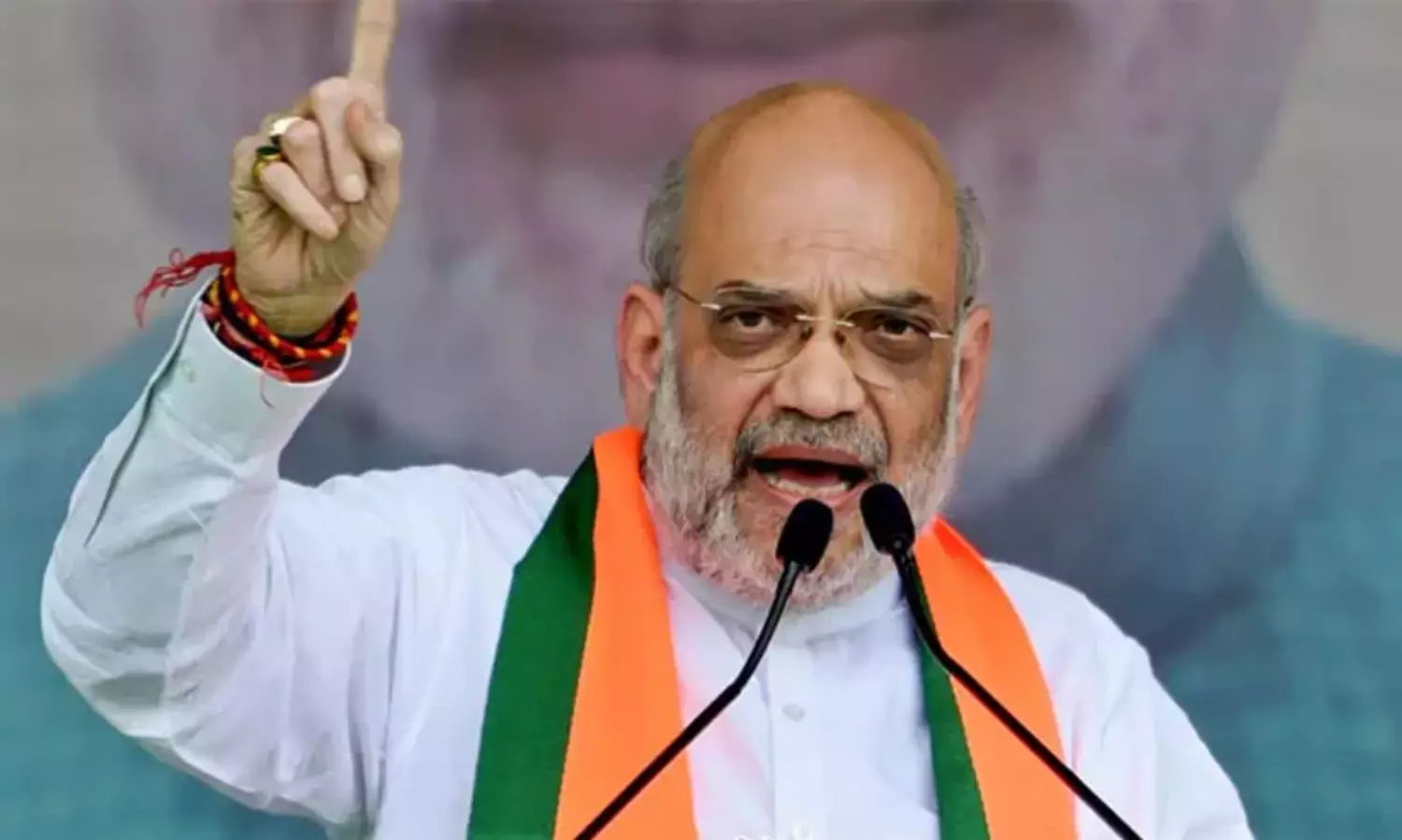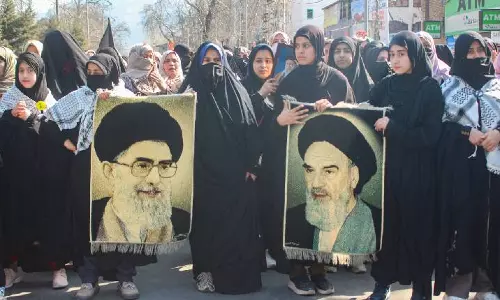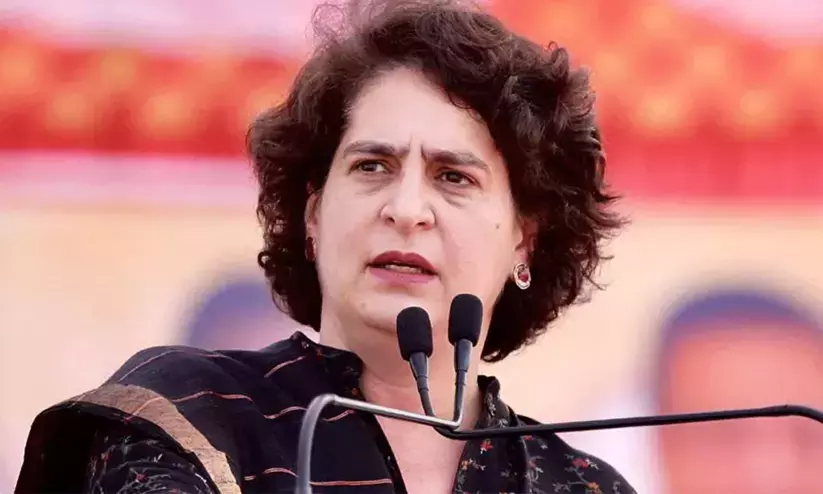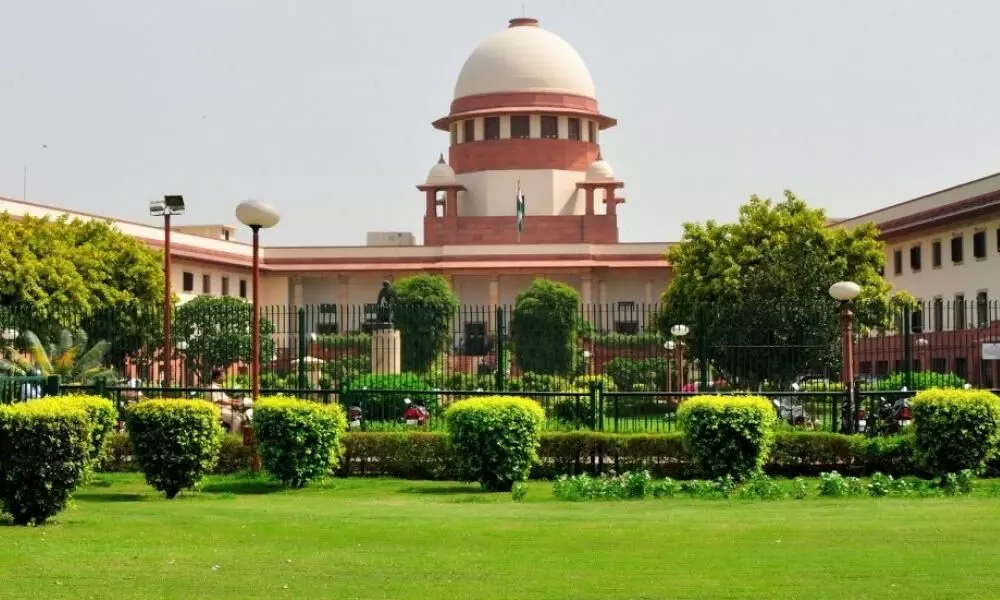
SC declines urgent hearing on plea against Talaq-e-Hasan
text_fieldsNew Delhi: The Supreme Court refused to urgently list a plea against the practices of Talaq-e-Hasan and all other forms of unilateral extra-judicial talaq. Talaq-e-Hasan is the practice in which a man divorces his wife by pronouncing "talaq" once a month for three months, IANS reported.
The plea, filed by Senior advocate Pinky Anand on behalf of a Muslim woman, was turned down by the vacation bench of Justices Ajay Rastogi and B.V. Nagarathna. The court asked her to mention the matter before its mentioning the registrar.
Raising the plea, Anand had contended that the petition was filed at the beginning of this month, and her client has been twice granted notices of divorce. She added that her client is with a child.
The plea, filed through advocate Ashwani Kumar Dubey, sought a direction to declare Talaq-e-Hasan and all other forms of unilateral extra-judicial talaq unconstitutional for being arbitrary, irrational, and violative of Articles 14, 15, 21, and 25 of the Constitution. Also, it sought a direction from the Union government to frame guidelines for neutral, uniform grounds of divorce and uniform procedure of divorce for all citizens.
The plea said: "The Muslim Personal Law (Shariat) Application Act, 1937, by providing for the application of Muslim personal law in matters relating to marriage where the parties are Muslims, conveys a wrong impression that the law sanctions Talaq-e-Hasan and all other forms of unilateral extra-judicial talaq, which is grossly injurious to the fundamental rights of married Muslim women and offends Articles 14, 15, 21 and 25 of the Constitution of India and the international conventions on civil and human rights."
According to the plea, the Constitution neither grants any absolute protection to the personal law of any community nor exempts personal laws from the jurisdiction of the legislature or the judiciary. It argued that Talaq-e-Hasan and other forms of unilateral extra-judicial talaq are neither harmonious with the modern principles of human rights and gender equality nor an integral part of the Islamic faith.
The plea added, "Many Islamic nations have restricted such practice, while it continues to vex the Indian society in general and Muslim women like the petitioner in particular. It is submitted that the practice also wreaks havoc on lives of many women and their children, especially those belonging to the weaker economic sections of the society."























